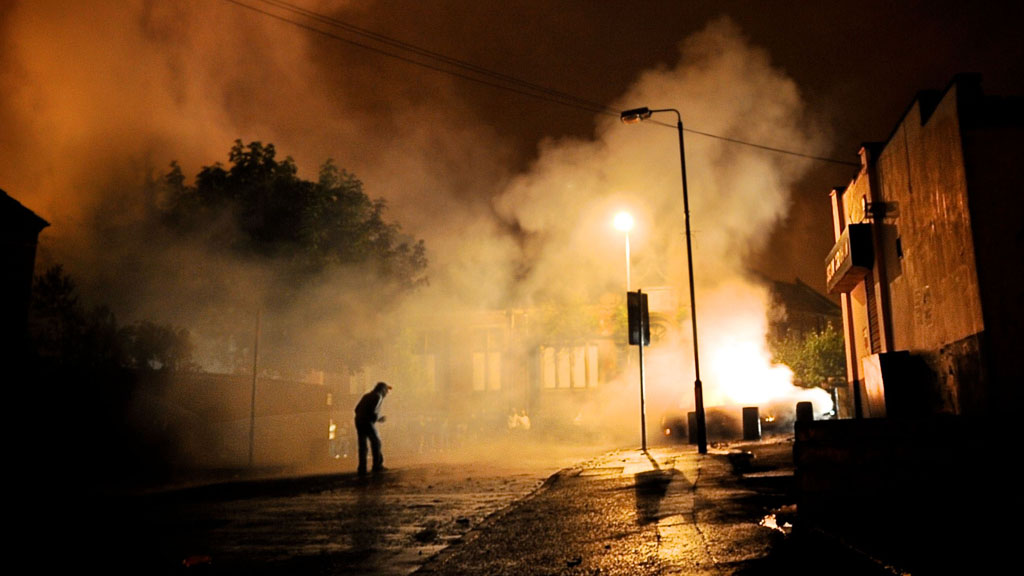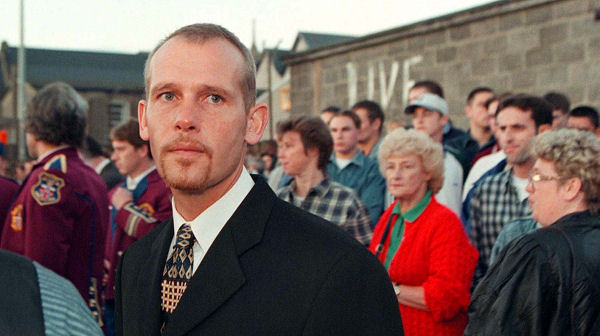High alert in Belfast as loyalist ‘supergrass’ trial begins
At one of the biggest paramilitary trials in decades, loyalist Mark Haddock is accused of ordering the murder of a rival.
With police preparing for trouble in loyalist areas, Haddock and 13 alleged associates went on trial in connection with the killing of Ulster Defence Association (UDA) leader Tommy English 10 years ago.
Haddock, a former police informer, is alleged to have said: “I want him done, shot dead.”
The case at Belfast Crown Court is controversial because evidence has been provided by two brothers who have aleady admitted their part in the murder.
David and Robert Stewart are Ulster Volunteer Force (UVF) members who became Crown witnesses so they could receive more lenient sentences.
‘Supergrass’ trials
Haddock’s supporters liken the case to the so-called ‘supergrass’ trials of the 1980s, when loyalist and republican paramilitaries were jailed on the evidence of former colleagues.
The court heard that the Stewart brothers claim Haddock and other senior UVF members in north Belfast planned the killing in retaliation for the shooting of a colleague.
English was shot dead in front of his wife and three children at their Belfast home in 2000. Gordon Kerr, prosecuting, said Haddock told the four men who volunteered to go to the house to avoid shooting the children. “As he left he told them to try to miss the kids and wished them good luck.”
At the jury-less trial, Mr Kerr also relayed English’s widow’s account of what happened. Doreen Haddock said a gang of masked men forced their way into her home, assaulted her and then shot her husband.
Violence fears
Police mounted a major security operation both outside and inside the court, because of concerns that this summer’s violent outbreaks in some working class areas of Belfast could erupt again.
Special measures were in place at the complex, with members of English’s family kept in a secure room connected to the court by video link.
Haddock had been living on bail outside Northern Ireland because of concerns for his safety. He returned to Northern Ireland last week and agreed to be placed in protective custody in prison.
More from Northern Ireland
-

Why violence has returned to the streets of Belfast
22 June 2011
-

The Billy Wright story
14 September 2010
-

No state collusion in Billy Wright’s murder
14 September 2010
-
Latest news
-
Laughing Boy: New play tells the tragic tale of Connor Sparrowhawk5m

-
Sewage warning system allows some of worst test results to be left off rating system, analysis shows3m

-
Post Office inquiry: Former CEO didn’t like word “bugs” to refer to faulty IT system4m

-
Israeli soldier speaks out on war in Gaza12m

-
PM’s defence spending boost should be ‘celebrated’, says former Armed Forces Minister4m

-






